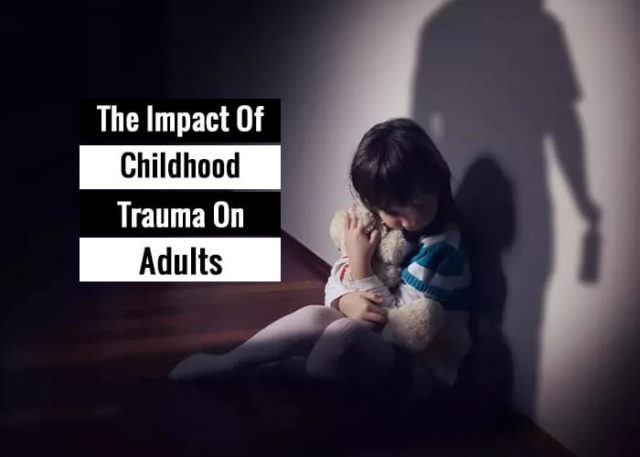

- SIGNS OF REPRESSED CHILDHOOD TRAUMA IN ADULTS HOW TO
- SIGNS OF REPRESSED CHILDHOOD TRAUMA IN ADULTS PROFESSIONAL
Of course, it’s easy to get confused when this happens, but it might be due to adverse childhood experiences.ĭoctors usually call this sign dissociative amnesia – a disorder that makes you forget important personal information. People around you might remember certain situations you have no idea about, which can make you question lost memories or events in your life. It’s normal to have setbacks that feel damaging but don’t let them control you or make you feel like you’re worthless. They care about your feelings and want to make an effort to help. Remember that the people in your life are there for a reason. Other signs of insecurity include relationship anxiety, overthinking, self-sabotage, and fear of rejection. The chronic pain associated with abandonment usually increases those feelings. Not overcoming traumatic memories tends to alter your thinking. Certain insecure feelings could especially lower your self-confidence and lead to depression. You might believe that no one wants to be in your life. Repressed childhood trauma is bound to cause insecurity for those who haven’t coped with the experiences. Exercise is one great habit that releases endorphins – feel-good hormones that can lift your mood throughout the day. Of course, if therapy isn’t a comfortable option, there are daily lifestyle habits you can build to improve your mental health. If you have other mental health concerns, don’t be afraid to discuss them during in-person therapy. They can offer treatment that uncovers repressed emotions from childhood events.
SIGNS OF REPRESSED CHILDHOOD TRAUMA IN ADULTS PROFESSIONAL
You should speak to a medical professional about mental disorders. Your subconscious mind is still overcoming those past events, which might spark extreme emotional shifts, depression, and chronic anxiety symptoms. #3 Suffering from mental illnessĭealing with mental health problems could be a huge sign that you have repressed childhood trauma. Simple acts like practicing meditation and going for morning walks can help you feel less paranoid. You may think everyone is against you, leading to paranoia in your everyday life. Having trust issues could also trigger paranoid thoughts. Traumatic experiences are usually to blame for the lack of trust, honesty, and low self-esteem. This decreases your emotional energy and makes you feel even more exhausted around other people. Not trusting anyone can make you feel isolated. Childhood trauma may have stripped all trust, leading to unease and fear around the existing people in your life. Trust issues could be the reason you struggle to make friends, get into a relationship, or converse with family members about important topics. This trauma defense mechanism can be a way of protecting yourself from more traumatic events. Finding an in-between is just not possible in any situation. Trauma survivors may have black and white thinking when believing the world is all good or all bad. The all-or-nothing beliefs could also disrupt relationships, damage your career, and cause physical or mental illnesses. Researchers have called this symptom cognitive distortion because it stops you from experiencing other perspectives. For example, someone might believe they have failed a test because of one mistake. This means they don’t see the bigger picture when it comes to the world. Here are the signs of repressed childhood trauma in adults: #1 Black and white thinkingīlack and white thinking is a mindset people may have due to unresolved childhood trauma. If you think something isn’t right, consider learning more about the psychological symptoms. People with adverse childhood experiences could be struggling with their mental health.


There are common signs that point toward repressed childhood trauma.
SIGNS OF REPRESSED CHILDHOOD TRAUMA IN ADULTS HOW TO
How to Remember Repressed Childhood Memories?Ĩ+ Signs of Repressed Childhood Trauma in Adults.How to Know if You Have Repressed Memories?.8+ Signs of Repressed Childhood Trauma in Adults.


 0 kommentar(er)
0 kommentar(er)
